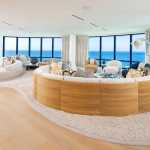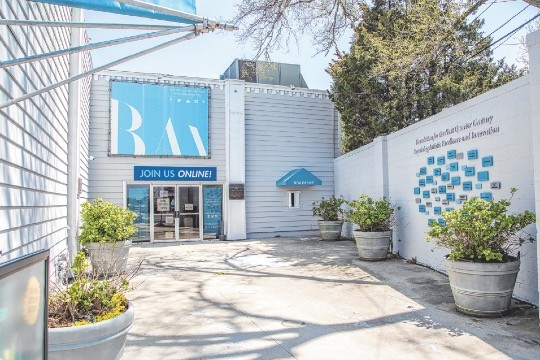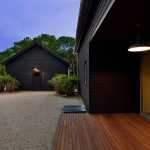The mark of a truly accomplished artisan is the ability to pass those skills down to the next generation. Each craftsman must one day hand down his or her expertise to an apprentice, spending years shaping their chosen heir as an independent talent who can stand on their own, add innovations and one day pass the torch again.
Since opening Grain Surfboards New York in Amagansett, owner Brian Schopfer has mastered the ability to teach even the most tender of tenderfoots how to build and shape fine wooden surfboards during five-day workshops using classic hand tools, often for the first time in their lives.
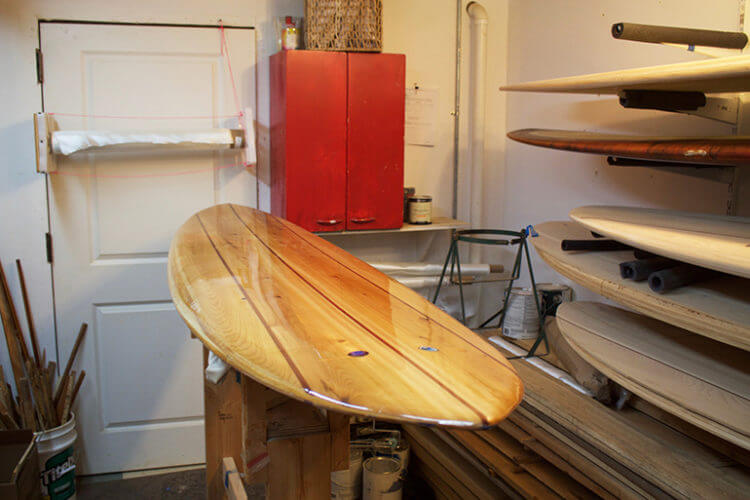
“Grain started up in Maine in 2005 by Mike Lavecchia. He was a boat builder and had just finished a big boat-building project and built himself a surfboard, and people started seeing his boards, and he started doing custom boards and then started doing the workshops,” Schopfer says, describing how the original Grain Surfboards was established in York, Maine, some 300 miles north of where he would eventually open his own Grain shop in Amagansett.
“I was actually a customer of one of his workshops,” Schopfer explains, noting that he was already doing custom furniture on Rhode Island at the time, but learning to build a surfboard was something special. He realized it would be a perfect fit in the Hamptons, an area Schopfer and his wife Aynsley got to know over 10 years of visiting her sister. “We were ready for a new adventure,” he recalls.
“I appreciated it because it was a lot of hand tools,” Schopfer says of the Grain method that inspired this life change. “When we’re building the boards, you don’t need power tools, ear protection, eye protection, respirators and stuff like that.”
Along with the model of teaching others to make these beautiful, functional objects, Schopfer says Grain is founded on an important ethos of environmental responsibility. “Surfboard building is kind of a dirty practice, a lot of awful chemicals,” he says describing the fiberglass boards most surfers ride today. “We’re trying to minimize the impact of surfing on the environment.”
Instead of using foam and toxic materials, Grain boards are pure wood sealed in a tree sap-based epoxy that can be handled without wearing a respirator. Additionally, the shop tries to reuse, repurpose and recycle everything.
“One of our rallying cries here is ‘Waste no waste.’ We’re down to just one bag of trash a week out of the shop–one big black trash bag,” Schopfer says, adding, “We reuse all the wood, all the little pieces, to make other things.” Wood shavings end up in a friend’s chicken coop, sawdust becomes compost and mulch, and cardboard and paper are recycled.
This way of doing things has always been part of Schopfer’s repertoire. He regularly makes garden swings using old wine barrels, a practice Schopfer started while rescuing wood from broken barrels at the Rhode Island winery where he used to live and work before opening Grain. These and other custom crafted items are now part of Schopfer’s other business, Stick + Stone, which includes everything he builds that isn’t surf or skate related, and is separate from Grain.
“Our gallery stuff, the framing, the custom furniture, all the stuff I was doing besides,” he says, “but when we approached Grain about opening up a shop down here, they didn’t want a Grain branded cutting board.”
A natural entrepreneur, Schopfer is constantly thinking of new ideas and ways to expand Grain, such as adding his shorter skateboard building workshops–something they weren’t doing in Maine–as well as a summer camp for kids, and creating surfboard and skateboard kits people can build at home. But board-building workshops remain at the heart of the business.
Schopfer and his team have an infectious enthusiasm, and he speaks of bonding with students during the intensive workshops. “A lot of my best friends are people who came here to build boards,” he says. “You spend all that time together and then we go surfing together.”
During a recent visit to Grain, Schopfer had students with boards in different stages of completion. One student, 15-year-old Aiden Santoro, was completing his board. “It’s really, really fun–it takes a lot out of you, but it’s worth it in the end,” Santoro said while removing the last imperfections from his creation with a steam iron. “This is the first time I’ve touched most of these tools,” he admitted, acknowledging a powerful sense of accomplishment.
Later, after signing his name in pencil and branding the board with a red hot Grain logo, Santoro and Schopfer posed for pictures together for the shop’s Instagram account. The young surfer beamed with pride while his mother and younger brother also snapped shots.
Some students join Grain workshops simply to build boards for decorative purposes, but Schopfer insists that people use them. “They’re a little bit heavy, like 10 to 15 percent heavier, so it’s usually an extra paddle or two to get into the wave, but once you get in it, you’ve got more momentum,” he explains. “The boards are super durable…they’re never going to snap in half–they’re really built to last a lifetime.”
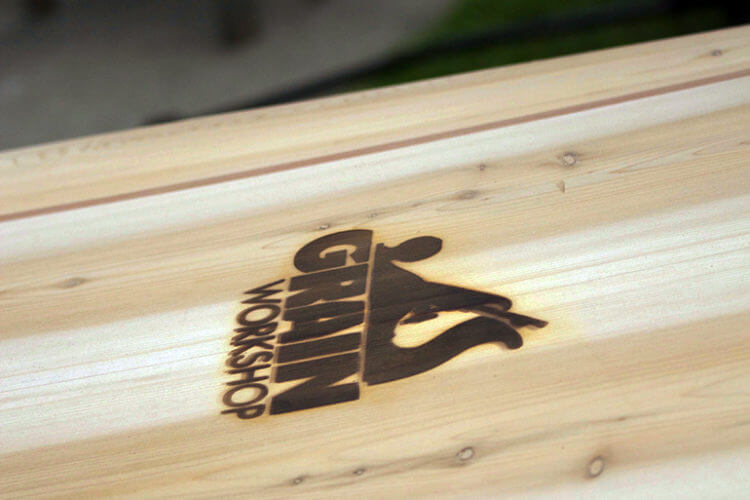
Visit grainsurfboards.com.






